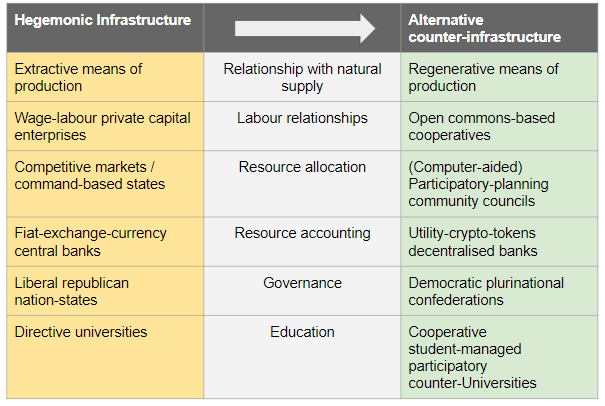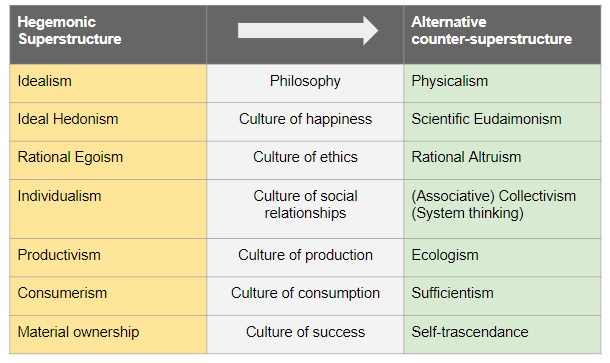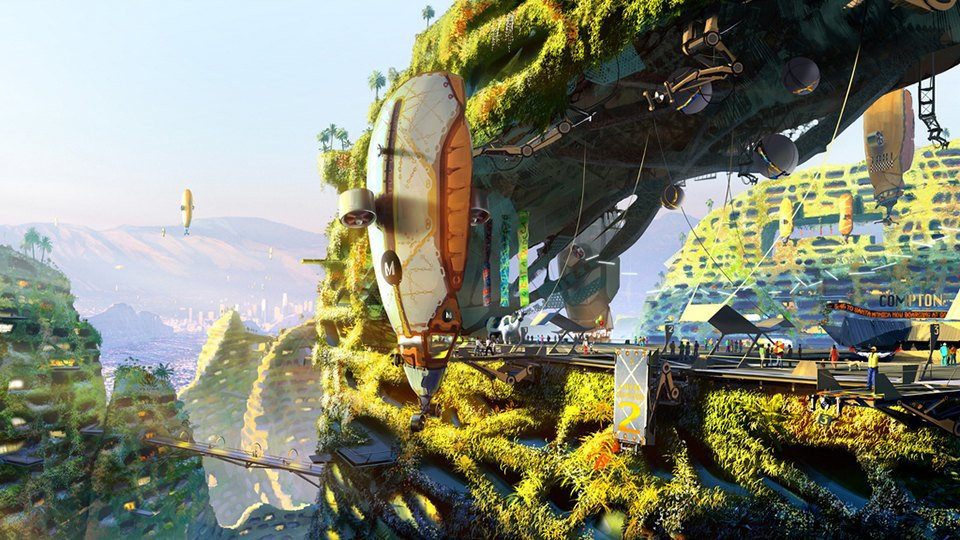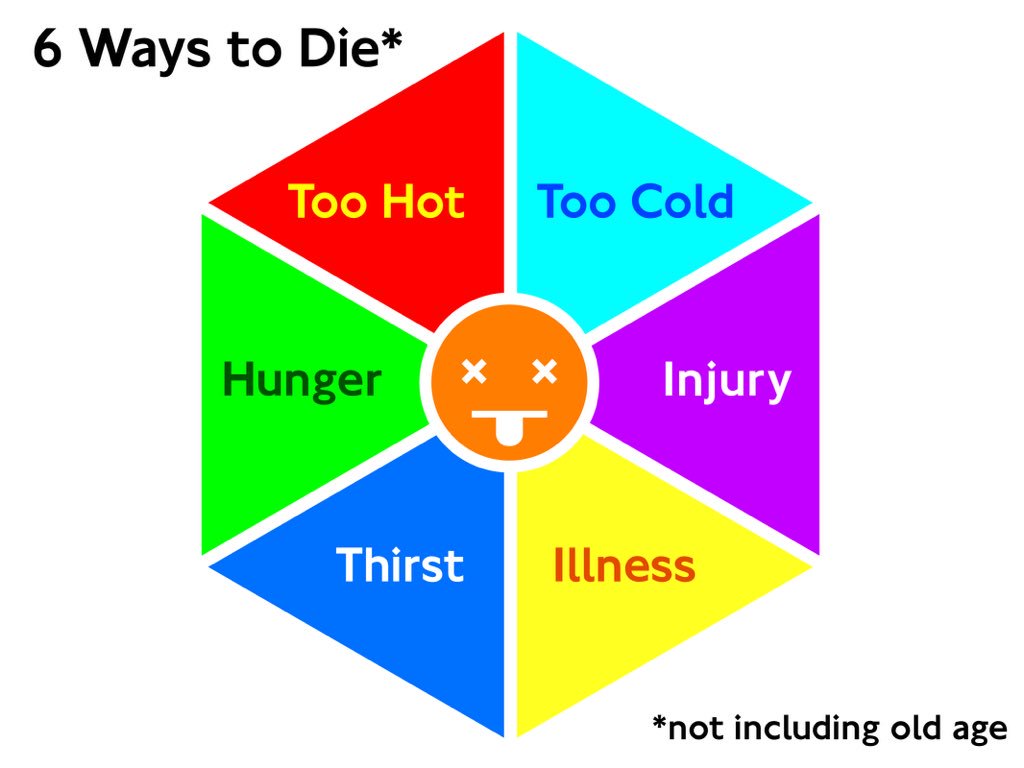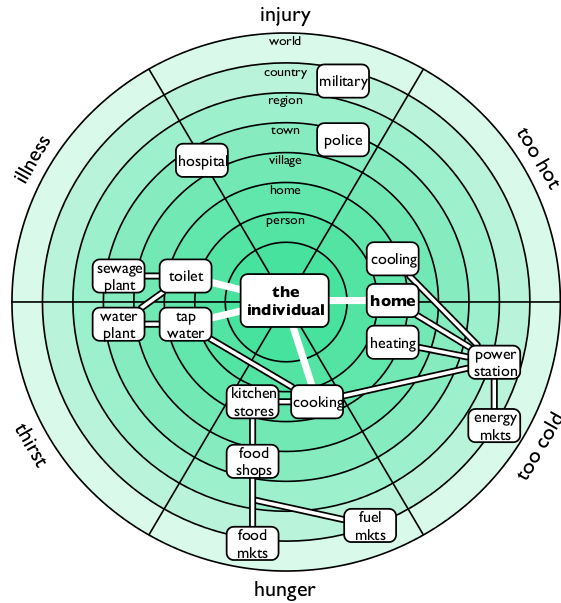I’d like to refute and clarify myself in some aspects in which I reviewed my views with higher scrutiny:
(A) By regenerative means of production I mean: (i) Surplus of production allocated democratically for social good (that is to say used ro progressively enhance social material conditions of life based on the available scientific examination of how to do so in the most efficient way historically possible at that time and subserviently, to enhance conditions for individual and collective human flourishing) in a working environment where average worker’s health is not deteriorated in the long-run (by excess of day-to-day distress and pressures related to meet the ROI expectations of shareholders in a context of being materially tied to an existential threat of unemployment if not submitting to that working configuration), (ii) Natural inputs are regenerated at equal or higher speed of usage of such resources, (iii) Environmental externalities are neutralised at the rate of production of them.
A.I Implies the need for social accounting, mechanism for individual feedback and collective retrospectives. A.II and A.III implies the need for environmental accounting.
(B) Collective property-based enterprises can become a key role for energy, services (specially knowledge-based services), education, culture and care sector, being the cooperative sector a critical sector for consumer-goods innovation (analog to the current social function of startups in the capitalist world) but probably not for EACH sector of a post-capitalist economy. Based on empirical experience from successful state-owned companies (like examining cases in China or Norway), infrastructure (mega projects), industrial banking, heavy industry, social welfare and science are likely to be better managed via public property, possibly with addition of mechanisms of worker and user co-management, participatory budgeting, and management accountability (like recalls, management elections, performance-based imperative mandates and or feedback mechanisms). Based on the research on commons (like Ostrom), culture, knowledge and natural resources could be managed via communal property. And it could be possible that in areas like renewal energy and computing, distributed propery might play a role. (Ex.: Blockchain / Holochain networks). For individual production, private property is, arguably, non-problematic.
(C) While local councils can indeed very useful and can serve as production units dedicated to meet local needs and aspirations. It is important to remark that higher levels of recursion would be required to process and aggregate data of such activities with a whole-view strategy of the economy, so I’m inclined to guess that an analog system like cybersyn would emerge to meet those requirements of high level strategy while being able to manage widely disperse needs and aspirations among niches of the population.
(D) This is highly defendant on energy consumption of a blockchain network. Could a holochain network become sufficiently energy optimal? I’m not fully sure. But with current payments technology, some sort of labour-time mutual credit might arise, like a utility token it is only used for a specific set of consumer goods and service. But it is cancelled after use and cannot be exchangeable, not used to buy means of social production.
(E) I mean a council democracy (re-callable candidates at higher levels with imperative mandates tied to a democratically set taskforce and peer-reviewed job descriptions) where different nations (specially colonized and oppressed have the right of self-determination to set autonomously their means and conditions of government).
(F) Poly-technical education based on social goals, where institutions are co-managed by students and workers and performance metrics are based on individual progress (how much you improve over time in comparison to you rather than to others) and on individual contribution to society. And also where homework and assignments are directly linked to real social problems via means of academic extension activities.
On the superstructure side,
(A) We might say materialism or naturalism as well. It ends up being highly debatable…
(B) I mean promoting incentives of reciprocity, resilience building, human flourishing, purpose, trascendance in a way in which we analyse scientific literature to understand which are the conditions that where those incentives emerge and evolves organically, rather than to keep promoting immediate profit and personal pleasure.
(C) Here I’ll stick to Mario Bunge’s Systemist concept.
(D) I’d recommend to read Agnes Heller material on self-actualisation from a materialist perspective.
Each point is not just a simple personal gut fealing, but a wide and extensive research made on historically existing experiences and contemporary socio-technological advancements, a research I have been making for a while. I’d be happy to share bibliography and extend my arguments to enhance the debate (It would get long if I do that here). I don’t discard to be massively wrong in many regards.
Cheers,
Ps.: Also, while I still think cooperativism can be a tactical way to build dual-power in an embryonic form of popular power that could be led to a larger infrastructure, I might be highly critical today on many of my previously proposed tactics . I’m working on wrapping up all my research and work but it might take some more months.
